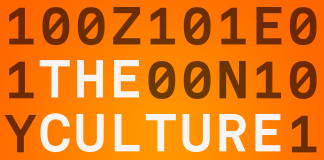
The Superhero of Artificial Intelligence by Clemency Burton-Hill

Read the summary below and get the key insights in just 10 minutes!

You may have heard of DeepMind for its history-making battle against champion player Lee Sedol at Go – a highly complex Chinese game of strategy and intuition. But do you know the man behind this technology? In this Guardian article, journalist Clemency Burton-Hill warmly introduces Demis Hassabis, co-founder of DeepMind. Hassabis comes across as superhuman but nice – a modest genius who ultimately wants his machines to serve humanity. He’s convincing; he even suspects he talked English physicist Stephen Hawking out of his reservations concerning artificial intelligence (AI) in just one meeting. So is there anything to worry about? Hassabis certainly doesn’t think so, but he seems happy to allay any fears by explaining how DeepMind works. getAbstract recommends this fascinating report to anyone who is excited or fearful about what AI means for the future of humankind.
[/text_block]

- What DeepMind is achieving using artificial intelligence (AI),
- How DeepMind works, and
- What potential risks and benefits AI poses to humankind.

Demis Hassabis’s employees describe him as a “visionary” manager. World Wide Web creator Tim Berners-Lee once called him “one of the smartest human beings on the planet,” and in 2014 Google reportedly paid $625 million for his company. Hassabis is both a computer scientist and cognitive neuroscientist, and, despite crafting video games from the age of eight and being a chess master at age 13, Hassabis is humble, friendly and unassuming. He has a passionate sense of purpose and finds his work deeply exciting.
“Go has…long been considered one of the ‘outstanding grand challenges’ of AI, and most researchers expected at least another decade to pass before a machine could even hope to crack it.”
Most artificial intelligence (AI), like your phone’s speech recognition, can only perform a single, specific job. Hassabis wants to create machines with “artificial general intelligence” that can think and learn any task. DeepMind’s algorithm – AlphaGo – learns and improves just as a human would. For example, it learned the strategy of the complex Chinese game Go by playing it, but with the advantage that it can play nonstop. DeepMind’s software combines classic “tree searches” with analysis of more sophisticated “deep neural networks” of brain neurons and also uses “reinforcement-learning,” which is reward-based like animal learning. DeepMind can plan long-term and will develop other forms of intelligence, such as memory, until the machine can transfer its learning from one area to another. As excited as Hassabis is about his achievement, he is more interested in the important issues this learning technology could help experts solve, such as climate change, disease and global economic failures.
DeepMind “has taught itself to master the game by using general-purpose machine learning techniques. Ultimately, we want to apply these techniques to important real-world problems like climate modeling or complex disease analysis. So it’s very exciting to start imagining what it might be able to tackle next.” (DeepMind co-founder Demis Hassabis)
Great minds like Stephen Hawking and DeepMind investor Elon Musk have expressed fears of AI being weaponized or simply outsmarting its creators and taking over. Hassabis believes computers are still far from matching human intellect and claims humans will always define the machine’s goals, but he acknowledges the need to consider the risks AI presents. DeepMind has an internal ethics board and advisory committee. Tellingly, after a recent meeting with Hassabis, Hawking has made no further public mention of AI as a threat.
[/text_block]

Clemency Burton-Hill is an English actress, novelist, musician, radio presenter and journalist. She writes for The Guardian, Vogue and The Economist.
[/text_block]




